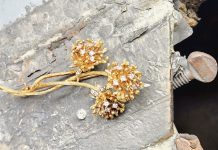A new drug trial, which is currently underway in South Africa, is exploring a promising new investigational treatment for chronic urticaria – a debilitating skin condition characterised by the recurrent appearance of hives that last for six weeks or longer.
Prof Jonny Peter, Head of the Division of Allergology and Clinical Immunology at Groote Schuur and the UCT Lung Institute, says there remains a need for new treatments aimed especially at patients who do not respond to high doses of antihistamines.
“Up till a few years ago, little was understood about the condition, but as more data has been collected through the Urticaria Centres of Reference and Excellence (UCARE) – a global network of urticaria care clinics – more effective treatments are being trialled to fill the void.”
One such treatment involves a humanised monoclonal antibody that interferes with mast cell survival – the primary immune cell that leads to hives and wheal formation.
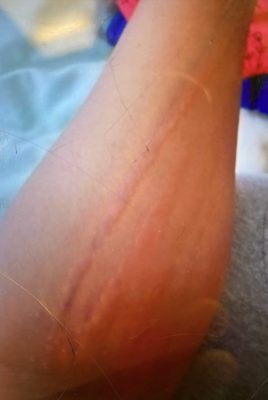
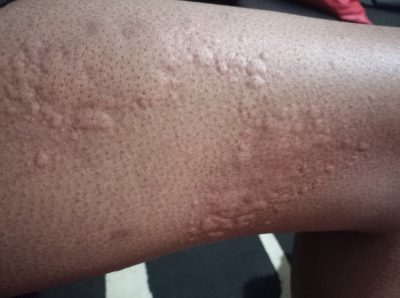
Prof Peter and other experts believe the mast cell depleting mechanism has the potential to completely control the condition. “The first set of trials conducted on this type of therapy overseas have already demonstrated remarkable response rates and impressive improvements in the quality of life in tough to treat forms of urticaria. The treatment has a rapid onset and sustained durability with a well-tolerated initial safety profile, which supports the ongoing Phase 2 studies in urticaria currently in progress across the world, including South Africa.
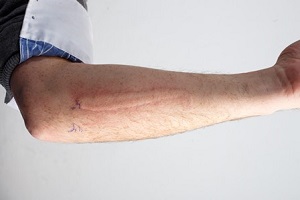
“While several SA patients have already been enrolled for the Phase 2 study of chronic urticaria, we still need a further six patients with two specialised forms of chronic urticaria. We are looking for candidates in Gauteng who suffer from chronic urticaria that is induced by physical stimulus, this is called chronic inducible urticaria (CIndU). The two most common are symptomatic dermographism (SD) and cold urticaria (ColdU).
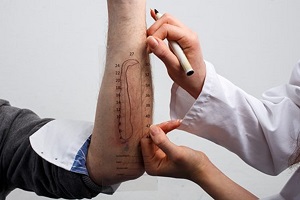
“Symptomatic dermographism is the most common type of inducible urticaria, occurring in approximately 2-5% of the population, where hives are triggered upon rubbing, pressure or mild trauma to the skin. The literal meaning is ‘to write on the skin’. Downward pressure on the skin produces a linear wheal in the shape of the applied external force. Other forms of chronic inducible urticarias result from other specific physical or environmental stimuli like cold, heat, exercise, sunlight, water or sweating”.
“Since these conditions are so rare, we are putting out a public service announcement about the trial.
Patients eligible for the trial, must be:
- 18 years or older.
- Diagnosed with a chronic inducible urticaria that has been present for more than three months.
- Have chronic inducible urticaria that is sufficiently severe to impact quality of life and not be responding to antihistamine therapy.
- Willing to maintain a daily diary and comply with the study procedure for the length of the study.
For more information about the trial, please contact the Durban UCARE facility on 031 403 2252.
Participation in the study is voluntary, and making contact does not obligate patients to join the study, nor are participants required to complete the study. Any and all data that can be collected will be helpful in improving health outcomes for patients.

